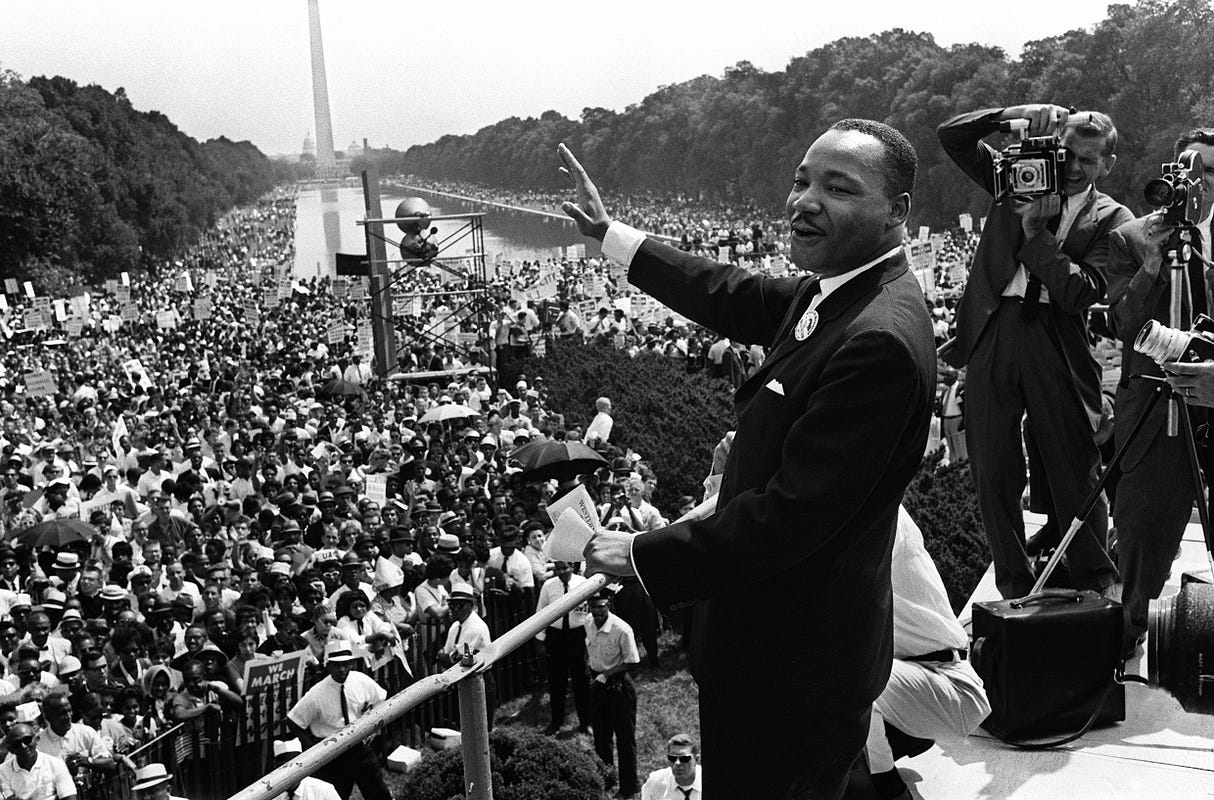By Bernie Sanders
Many years ago I was honored to be among those who marched on Washington with Dr. Martin Luther King Jr. I was there for his famous “I Have a Dream” speech, and I heard him say that African-Americans live “on a lonely island of poverty in the midst of a vast ocean of material prosperity.”
Dr. King taught us that the struggle for justice is economic, as well as social and legal. As he said in Memphis, a few short weeks before his death:
Our struggle is for genuine equality, which means economic equality. For we know now that it isn’t enough to integrate lunch counters. What does it profit a man to be able to eat at an integrated lunch counter if he doesn’t have enough money to buy a hamburger?
“We have come here today,” Dr. King told us in Washington, “to dramatize a shameful condition.” We have seen progress, but that shameful condition persists. Too many Americans still live in poverty. Many are working in poverty, too, because they can’t earn a living wage. And if we don’t do something about it, the generations to come will have it even worse.
That’s why I have joined with Rep. John Conyers to introduce the Employ Young Americans Now Act. It will provide $5.5 billion in immediate funding to employ one million young Americans between the ages of 16 and 24, and to provide job training to hundreds of thousands of others.
Let me tell you why this is so important. The Economic Policy Institute studied the real unemployment figures for recent high school graduates aged 17–20, including people who have given up looking for work and those who are working part-time but seek full-time employment. They are devastating. More than one third of white and Hispanic youth (33.8 and 36.1 percent, respectively) are looking for work. Shockingly, so are more than half of African-Americans (51.3 percent).
I want to emphasize that:
When you look at the real job figures, more than 50 percent of young African-Americans are looking for work.
Recent college graduates are struggling, too. The real unemployment rate for young white graduates is 12.9 percent. And it’s nearly double that for young African-Americans and Hispanics (23 percent 22.4 percent, respectively). That’s nearly one in four.
Worse, studies have shown that a person’s lifetime earnings are heavily influenced by the amount of money they make in the first few years of their working lives. We’re not just hurting these young people today. If we do nothing, they will be deprived economically for the rest of their lives.
 The picture is already grim. More than one in six part-time workers, and nearly one in twenty full-time workers, is impoverished despite their own labors. And African-Americans and Hispanics are twice as likely to be among the working poor as their white counterparts. If we do not address the crisis of youth unemployment, these statistics are likely to become even worse.
The picture is already grim. More than one in six part-time workers, and nearly one in twenty full-time workers, is impoverished despite their own labors. And African-Americans and Hispanics are twice as likely to be among the working poor as their white counterparts. If we do not address the crisis of youth unemployment, these statistics are likely to become even worse.
One thing is clear: We are not making the progress that Dr. King called us to achieve in the 1960s. More than one in four African Americans live in poverty, while that figure is less than one in ten for whites. The median income for African-American households is less than 60 percent that of white households. And a recent study from Brandeis University shows that the wealth gap between black and white families has nearly tripled over the last twenty-five years.
There is much that we must do to address these inequities. We need to raise the minimum wage to a livable amount. This is not unreasonable.
If the minimum wage had kept pace with productivity, it would be more than $16 per hour today. It is only the greed of the few, and the political disenfranchisement of the majority, that has kept the minimum wage so low.
When I heard Dr. King speak in on that afternoon in 1963, the actual minimum wage was actually higher than it is today. 1963’s Federal minimum wage was worth $8.37 in today’s dollars. Today it’s $7.25.
We must not condemn young people, especially in our minority communities, to lives that are even harsher than those of their parents. It is time to declare once and for all: Black lives matter — on the streets, and on the job too.
As Dr. King told us on that sunny day in Washington, “1963 is not an end, but a beginning.” It’s our turn to do the work of justice. Our young people are our nation’s future, and it is time to give them the future they deserve.
This article first appeared in Medium. More about Bernie Sanders




